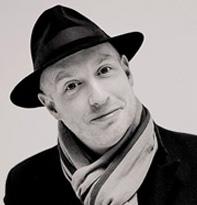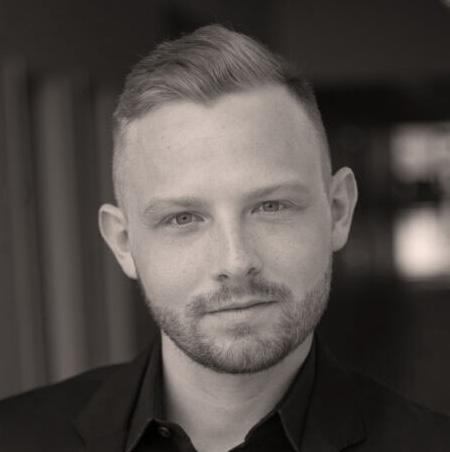


Boston, Massachusetts and
SYMPHONY HALL
Saturday, April 27, 2024




BOSTON UNIVERSITY
COLLEGE OF FINE ARTS SCHOOL OF MUSIC PRESENTS and
SYMPHONY HALL
Boston, Massachusetts
Saturday, April 27, 2024
1:00pm






Boston, Massachusetts and
Saturday, April 27, 2024




COLLEGE OF FINE ARTS SCHOOL OF MUSIC PRESENTS and
SYMPHONY HALL
Boston, Massachusetts
Saturday, April 27, 2024
1:00pm


Welcome to Symphony Hall!


153 years ago, Boston University established a school of music. The new school was unlike all others in the United States. It was the first to center the study of music as worthy of a degree. Over the next century and a half, scores of universities and colleges would follow BU’s lead and, by doing so, would help establish a rich, dynamic culture of music in this country and beyond.
Music was one of many BU “firsts.” Boston University was among the first colleges to be coeducational. Almost a century before the Ivy League, BU was a leader in smashing the barriers of gender discrimination. Unlike other universities that restricted entry on the basis of race or religion, Boston University embraced talented students of all backgrounds and complexions from its beginning. Dr. Martin Luther King, Jr. received his doctorate from BU.
Boston University remains a leader. We are a proudly global university with nearly 400,000 living alumni around the world. Nearly every major symphony orchestra on this planet has counted BU School of Music alumni among its members. Our alumni are arts leaders, educators, music critics, and more. The impact of BU School of Music has been profound.


Today, we look ahead to the future. We spotlight emerging artists whose talent, skill, passion for music, and ingenuity will shape this century of music. Mentored by world-class faculty, they are exceptionally prepared and ready for this moment.
Harvey Young Dean, Boston University College of Fine Arts

Benjamin Britten (1913-1976) – Four Sea Interludes from Peter Grimes


Boston University Symphony Orchestra conducted by James Burton
I. Dawn
II. Sunday Morning
III. Moonlight
IV. Storm
Ēriks Ešenvalds (b. 1977) – War – A Soldier’s Grave

Boston University Symphonic Chorus conducted by Daniel Parsley
Ralph Vaughan Williams (1872-1958) – Dona nobis pacem Symphony Orchestra & Symphonic Chorus conducted by James Burton
Madeleine Lew, Soprano
Libang Wang, Baritone
1. Lento (Agnus Dei)
2. Allegro moderato (Beat! Beat! Drums!)
3. Reconciliation. Andantino
4. Dirge for Two Veterans. Moderato alla marcia



5. L’istesso tempo (The Angel of Death has been abroad throughout the land)
6. Poco animato (O man, greatly beloved, fear not!)
Intermission
Edward Elgar (1857-1934) – Enigma Variations Symphony Orchestra conducted by James Burton
Theme (Andante)
Variation I. L’istesso tempo “C.A.E.”
Variation II. Allegro “H.D.S-P.”
Variation III. Allegretto “R.B.T.”
Variation IV. Allegro di molto “W.M.B.”
Variation V. Moderato “R.P.A.”
Variation VI. Andantino “Ysobel”
Variation VII. Presto “Troyte”
Variation VIII. Allegretto “W.N.”
Variation IX. Adagio “Nimrod”
Variation X. Intermezzo: Allegretto “Dorabella”
Variation XI. Allegro di molto “G.R.S.”
Variation XII. Andante “B.G.N.”


Variation XIII. Romanza: Moderato “* * *”
Variation XIV. Finale: Allegro Presto “E.D.U.”



elcome to the esteemed Boston Symphony Hall for our annual concert featuring the exceptional ensembles from the College of Fine Arts School of Music at Boston University. Tonight marks an annual celebration of our most talented undergraduate and graduate students at BU, who proudly demonstrate their remarkable skill and unwavering dedication to the art of music.
Boston University boasts a rich tradition of presenting extraordinary works in orchestral and choral repertoire, and tonight is no exception. Led by the distinguished Maestro James Burton and Maestro Daniel Parsley, our orchestras and choruses come together to deliver an evening brimming with significant musical compositions. Their expertise and unwavering commitment to musical education ensure our students receive the highest level of training, preparing them to make meaningful contributions to Boston’s vibrant musical landscape and beyond.
As an institution, the College of Fine Arts at Boston University has long been synonymous with artistic excellence in the city, and tonight’s concert serves as a testament to our ongoing dedication to upholding that legacy. We take immense pride in continuing our tradition of presenting performances of the highest caliber.
Together, the faculty, students, and staff of the College of Fine Arts School of Music embody the spirit of collaboration and excellence that defines our institution. Their collective efforts and steadfast commitment to musical excellence make our School a genuinely exceptional place to learn, perform, and cultivate artistic growth. To our esteemed audience, supporters, and friends who have continued to champion the school’s endeavors, we extend the warmest of welcomes. Welcome to our community! Your steadfast support enables us to nurture and inspire the next generation of musical talent.
Thank you for gracing us with your presence this evening. Sit back, relax, and savor the concert.
Gregory Melchor-Barz Director, Boston University College of Fine Arts School of Music


Darkness and I are one, and wind
And nagging thunder, brothers all.
My mother was a storm. I call
And shorten your way with speed to me.
I am the love and Hate and the terrible mind
Of vicious gods, but more am I,
I am the pride in the lover's eye,
I am the epic of the sea.
Then in the lull of midnight, gentle arms
Lifted him slowly down the slopes of death
Lest he should hear again the mad alarms
Of battle, dying moans, and painful breath.


And where the earth was soft for flowers we made A grave for him that he might better rest.
So, Spring shall come and leave it sweet arrayed,
And there the lark shall turn her dewy nest.
Francis Ledwidge (1887-1917)


Agnus Dei qui tollis peccata mundi
Dona nobis pacem
Beat! beat! drums! – blow! bugles! blow!
Through the windows – through the doors – burst like a ruthless force, Into the solemn church, and scatter the congregation, Into the school where the scholar is studying;


Leave not the bridegroom quiet – no happiness must he have now with his bride, Nor the peaceful farmer any peace, ploughing his field, or gathering in his grain, So fierce you whirr and pound you drums – so shrill you bugles blow.



Beat! beat! drums! – blow! bugles! blow!

Over the traffic of cities – over the rumble of wheels in the streets; Are beds prepared for the sleepers at night in the houses? No sleepers must sleep in those beds,
No bargainers’ bargains by day – would they continue? Would the talkers be talking? would the singer attempt to sing?
Then rattle quicker, heavier drums – you bugles wilder blow.
Beat! beat! drums! – blow! bugles! blow!
Make no parley – stop for no expostulation,
Mind not the timid – mind not the weeper or prayer,
Mind not the old man beseeching the young man, Let not the child’s voice be heard, nor the mother’s entreaties, Make even the trestles to shake the dead where they lie awaiting the hearses, So strong you thump O terrible drums – so loud you bugles blow.



Word over all, beautiful as the sky, Beautiful that war and all its deeds of carnage must in time be utterly lost, That the hands of the sisters Death and Night incessantly, softly, wash again and ever again this soiled world; For my enemy is dead, a man divine as myself is dead, I look where he lies white-faced and still in the coffin – I draw near, Bend down and touch lightly with my lips the white face in the coffin.
The last sunbeam
Lightly falls from the finished Sabbath, On the pavement here, and there beyond it is looking Down a new-made double grave.
Lo, the moon ascending, Up from the east the silvery round moon, Beautiful over the house-tops, ghastly, phantom moon, Immense and silent moon.


I see a sad procession, And I hear the sound of coming full-keyed bugles, All the channels of the city streets they’re flooding As with voices and with tears.




I hear the great drums pounding, And the small drums steady whirring, And every blow of the great convulsive drums Strikes me through and through.
For the son is brought with the father, In the foremost ranks of the fierce assault they fell, Two veterans, son and father, dropped together, And the double grave awaits them.
Now nearer blow the bugles, And the drums strike more convulsive, And the daylight o’er the pavement quite has faded, And the strong dead-march enwraps me.
In the eastern sky-up buoying, The sorrowful vast phantom moves illumined, ‘Tis some mother’s large transparent face, In heaven brighter growing.
O strong dead-march you please me!
O moon immense with your silvery face you soothe me!
O my soldiers twain! O my veterans passing to burial!
What I have I also give you.
The moon gives you light,


And the bugles and the drums give you music, And my heart, O my soldiers, my veterans, My heart gives you love.
Walt Whitman
V


The Angel of Death has been abroad throughout the land; you may almost hear the beating of his wings. There is no one as of old….. to sprinkle with blood the lintel and the two side-posts of our doors, that he may spare and pass on.
John Bright
Dona nobis pacem.
We looked for peace, but no good came; and for a time of health, and behold trouble!
The snorting of his horses was heard from Dan; the whole land trembled at the sound of the neighing of his strong ones; for they are come, and have devoured the land….. and those that dwell therein…..


The harvest is past, the summer is ended, and we are not saved….
Is there no balm in Gilead?; is there no physician there? Why then is not the health of the daughter of my people recovered?
Jeremiah VIII. 15-22




‘O man greatly beloved, fear not, peace be unto thee, be strong, yea, be strong.’
Daniel X. 19
‘The glory of this latter house shall be greater than of the former…. and in this place will I give peace.’
Haggai II. 9
‘Nation shall not lift up a sword against nation, neither shall they learn war any more.
And none shall make them afraid, neither the sword go through their land. Mercy and truth are met together; righteousness and peace have kissed each other.


Truth shall spring out of the earth, and righteousness shall look down from heaven.
Open to me the gates of righteousness, I will go into them. Let all the nations be gathered together, and let the people be assembled; and let them hear, and say, it is the truth.
And it shall come, that I will gather all nations and tongues.
And they shall come and see my glory. And I will set a sign among them, and they shall declare my glory among the nations. For as the new heavens and the new earth, which I will make, shall remain before me,

so shall your seed and your name remain for ever.’
Glory to God in the highest, and on earth peace, good-will toward men.
(Adapted from Micah iv. 3, Leviticus xxvi. 6, Psalms lxxxv. 10, and cxviii. 19, Isaiah xliii. 9, and lxvi. 18-22, and Luke ii. 14)








California native Madeleine Lew is a young soprano completing her second season at the Boston University Opera Institute in the studio of Penelope Bitzas. There this season she portrayed La Fée in Massenet’s Cendrillon, Servilia in La Clemenza di Tito, and Quinn in Melissa Dunphy’s Alice Tierney. Last season at the Opera Institute, Madeleine performed the roles of Amy in Little Women, Morgana in Handel’s Alcina, and the title role of Beatriz in Catan’s La Hija de Rappaccini. Madeleine received her Masters at the University of Southern California and is a recent graduate of the San Francisco Conservatory of Music. A lover of new works, Madeleine made her European debut in Helsinki, Finland in March 2022, creating the leading role of the Bear in Uljas Pulkiss’s world premiere of All the Truths We Cannot See. Madeleine is a winner of the prolific 2023 Frank Huntington Beebe Fund grant with which she spent a period of time in Vienna studying the life and music of long forgotten Holocaust-era composer Josefine Winter. Ultimately, she aims to record this music with a recording label and restore Winter’s erased musical legacy. Madeleine is also a previous winner of the Boston District of the Laffont Metropolitan Opera Competition, the East Bay Opera League Competition, and a Bell Encouragement Award winner of the James Toland Vocal Arts competition. This season she is a finalist in both the art song and opera categories for the 2024 American Prize. She is honored to receive the Phyllis Curtin Award from the Boston University Opera Institute. Madeleine makes her Symphony Hall debut as the soprano soloist in BU’s performance of Vaughan Williams’ masterpiece Dona nobis pacem. This June she will perform with NEMPAC Boston as the title role of Euridice in Gluck’s Orfeo ed Euridice


Libang Wang, baritone, from Xiamen, China, is pursuing a doctorate degree at Boston University under the tutelage of James Demler. He earned a master of music in vocal performance from New England Conservatory (NEC) where he studied with Michael Meraw in 2023. He pursued the bachelor's degree from Xiamen University.
Libang has sung Papageno in Die Zauberflöte for NEC’s Opera. He has sung Guglielmo in Così fan tutte, Count Almaviva in Le nozze di Figaro and Don Giovanni for opera scenes. Last year, he performed as a baritone soloist in Gabriela Lena Frank’s Conquest Requiem with NEC Philharmonia and Chorus in the Boston Symphony Hall as the East Coast premiere.






TDirector of Orchestral Activities Master Lecturer, Music

at Symphony Hall and Tanglewood, and has guest conducted concerts with the Boston Symphony Orchestra. He has given over 30 performances as a frequent guest conductor of the Boston Pops, and he founded the Boston Symphony Children’s Choir in 2018.


his concert marks James Burton’s final performance as Director of Orchestral Activities at Boston University. As Master Lecturer at the College of Fine Arts since 2020, Mr Burton has overseen the school’s orchestral repertoire, performances, and stewardship of orchestral education, and he has served as principal studio teacher for the doctoral program in orchestral conducting. This season he has led BUSO performances of music by Beethoven, Bernstein, Brahms, Chen Yi, Larsen, Strauss and Tchaikovsky, as well as Shostakovich’s Symphony No. 10. Maestro Burton conducted BUSO and the BU Symphonic Chorus in last season’s sellout performance of Mahler Symphony No. 2 at Symphony Hall.
In 2017, Mr Burton was appointed as the Boston Symphony Orchestra Choral Director and Conductor of the Tanglewood Festival Chorus. He has given performances regularly

Born in London, Mr Burton has performed with many leading UK orchestras including the Royal Liverpool Philharmonic, the Orchestra of the Age of Enlightenment, the Hallé Orchestra, the Orchestra of Scottish Opera, the Royal Northern Sinfonia, BBC Concert Orchestra, and Manchester Camerata. He has been a regular guest conductor of the Orquestra Sinfónica Nacional of Mexico, and in 2018 was honoured to lead the orchestra’s 90th anniversary concerts, performing Beethoven’s Symphony No. 9 in the Palacio de Bellas Artes in Mexico City. Mr Burton’s opera credits include performances at English National Opera, English Touring Opera, Garsington Opera, the Prague Summer Nights Festival, and in his early career he worked as assistant conductor for the Metropolitan Opera, Opéra de Paris and Opera Rara.
Recently he has conducted the Ulster Orchestra and the Vermont Symphony, and he will guest with Denmark’s Aalborg Symphony this coming summer. With a strong
background in choral repertory, Mr Burton was Choral Director of the Hallé Orchestra and Music Director of the Schola Cantorum of Oxford, and he has regularly conducted the BBC Singers and other leading professional choirs including Tenebrae on their recent USA tour. He won the Gramophone Choral Award in 2009.
Mr Burton holds a Master of Music in Orchestral Conducting from the Peabody Institute of the Johns Hopkins University, where he studied with Frederik Prausnitz and Gustav Meier. He earned his Bachelor of Arts (Music) and Master of Arts (Music) from St. John’s College, Cambridge University where he was a choral scholar, having begun his musical training as a chorister in the Choir of Westminster Abbey. Also an active composer, Mr Burton’s works have been performed by leading choral groups including the King’s Singers, and his work The Lost Words was recently performed by the Royal National Scottish Orchestra. His composition portfolio is published by Edition Peters. •




DANIEL PARSLEY


Director of Choral Activities and Director of Graduate Conducting Programs
Assistant Professor Choral Conducting



Daniel Parsley enjoys an active career as a conductor, educator, scholar, and professional chorister. Daniel is Director of Choral Activities and Director of Graduate Conducting Programs at the historic School of Music at Boston University, the oldest degree-granting music program in the United States. At BU, Daniel oversees the comprehensive MM, MSM, and DMA conducting programs, teaches graduate conducting and choral literature, and leads the BU Singers and Symphonic Choir. Daniel was most recently the Director of Choral Activities and Program Head at Thomas More University in the Cincinnati area. At Thomas More, he founded and directed three choruses that included over 125 singers and taught music history and music theory. Daniel currently serves as associate conductor for the National Children’s Chorus. While in Cincinnati, he was associate director for the Cincinnati Youth Choir, Ensemble-in-Residence at the University of Cincinnati College-Conservatory of Music. Since 2019, Daniel has served as associate conductor of the Cincinnati Chamber Orchestra (CCO). At the CCO, he leads the We Are One series, special events such as the Walk with Amal project,
and assists with an annual Summermusik festival. In 2023, Daniel made his guest conductor debut with the Portland Symphony Orchestra and renowned professional recording ensemble Coro Volante. Most recently, Daniel was the assistant conductor and choral conducting fellow for the Cincinnati May Festival, where he prepared choruses for the Cincinnati Symphony Orchestra and Cincinnati Pops. Daniel’s passion for choral arts extends beyond conducting: He has performed with many choruses as a professional singer, including the Cleveland Orchestra Chorus, Cincinnati May Festival Chorus and Youth Chorus, Toledo Opera, Tuscia Opera Festival (Viterbo, Italy), and Berkshire Choral Festival. As a conductor of symphonic choral literature, Parsley has most recently prepared choruses for John Morris Russell, Gerhardt Zimmermann, James Meena, and Giordano Bellincampi.
(CCSA) London summer study abroad since 2013.

A Cincinnati native, Parsley completed a Doctor of Musical Arts (DMA) in Choral Conducting with a cognate in orchestral conducting at the University of CincinnatiCollege Conservatory of Music (CCM). Daniel also holds a M.M. in Choral Conducting from Bowling Green State University and a B.M. Voice Performance and B.A. International Studies with concentrations in economics and history from Xavier University. In 2019, Daniel was selected as one of four finalists for the 2019 American Choral Directors’ Association National Graduate Conducting Competition held in Kansas City. Parsley has studied conducting under Robert Porco, Earl Rivers, Brett Scott, AikKhai Pung, Mark Munson, and Tom Merrill.



Parsley has enjoyed a wide breadth of diverse professional experiences globally ranging anywhere from roles as a research fellow in Ghana, West Africa through the Edward Brueggeman Center for Dialogue to engagements with the National Chorus of Korea in Seoul. Upcoming engagements, masterclasses, and residencies include the Hochschule für Musik und Theater München, the University of British Columbia, and the ISSEA Choral Festival in Maputo, Mozambique. He has served as faculty for the Kentucky Institute of International Studies (KIIS) Salzburg Study Abroad Program and Cooperative Center for Study Abroad
Parsley’s current research interest focuses on the integration of Body Mapping, a method of instruction typically reserved for the private studio, in conducting pedagogy and the overall choral rehearsal. Recent scholarly publications include a curriculum guide for collegiate educators to apply Body Mapping techniques in ensemble rehearsals. Daniel is currently a Body Mapping Educator Affiliate with Andover Educators.
Daniel was most recently the Music in Worship Chair for the Ohio Choral Director’s Association. He currently serves as music director at First Parish Unitarian Universalist of Arlington. Daniel is an active member of ACDA, ChorusAmerica, AGO and NAfME. •




When thinking of the compositional output of Benjamin Britten, one would be remiss not to mention his major works such as the educational The Young Person’s Guide to the Orchestra, the staunchly pacifist War Requiem, and his first large-scale and arguably most famous opera Peter Grimes. Premiered in June 1945 as the first work to be staged at the Sadler’s Wells theater’s reopening after World War II, Peter Grimes depicts the tragic tale of a maligned fisherman ostracized by his community after being wrongly accused of murdering his apprentice. The four Sea Interludes being performed tonight are part of a set of six orchestral interludes that Britten wrote and interspersed within Peter Grimes to change and establish scenes within the opera. In creating the Four Sea Interludes as a concert work, Britten selected the interludes most closely tied to the representation of the ocean – namely the first, second, third, and fifth – reorganized the order of appearance, and adjusted the endings to make each movement self-contained.



Each of the Interludes represents different characteristics of life by the sea. The first movement, “Dawn,” gently awakens the world (perhaps on a Monday?) to the sound of violins and flutes, the gentle play of waves in the harp and clarinets, and the ominous reality of surviving another day in the brass. The second movement, “Sunday Morning,” depicts the sounds of a bustling town on their day of rest, accompanied by the peal of church bells. The third movement, “Moonlight,” evokes the mysterious calm of moonlit waters, punctuated with the occasional shooting star represented by the flute and xylophone and accompanied by orchestral swells that ebb and flow like the tide. The fourth movement, “Storm,” depicts the destructive and unpredictable nature of a tempest, with the unbridled power of the full orchestra raging and leaving both awe and uneasiness in its wake.
- Ken Yanagisawa (CFA’24), DMA Orchestral ConductingĒriks Ešenvalds (b. 1977)
In 2019, the ensemble New Dublin Voices commissioned a new piece from Latvian composer Ēriks Ešenvalds for a Remembrance Day (Veteran’s Day) concert called “In a Time of War.” Mindful of those for whom he was writing, Ešenvalds selected and juxtaposed two contrasting poems from the Irish poet Francis Ledwidge, who was killed in action during the Great War (World War I). The






resulting piece begins violently, featuring clashing dissonances and oddly placed syncopations, which breathe life into the text of a poem that extols the supposed virtues and glories of war. After a particularly stormy passage on the open vowel “ah,” the music abruptly changes as the text moves almost seamlessly into the second poem. As the chorus sings about a quiet funeral scene away from the battlefield, the music now features much more open, consonant harmonies against the backdrop of a much more placid tempo than at the opening. While this choice to combine these two very different texts into a single piece may seem odd, the music that Ešenvalds created around these texts aptly and beautifully captures the extreme contrasts of war: the violence and the moments of peace; the intimate meaningfulness and the impersonal meaninglessness. The piece ends on a hopeful note, illustrating how the soldier’s grave becomes a bed of flowers where birds can build their nests, which suggests that, even after the destruction of war, new life can arise.
Dona Nobis Pacem
Ralph Vaughan Williams (1872-1958)




The 1930s was a decade of great change and great anxiety in Europe as many people began to perceive that, despite the destruction of the Great War, the continent was again teetering on the brink of another major conflict. In this context, English composer Ralph Vaughan Williams penned music to three Civil War-era poems by Walt Whitman interspersed with texts from the Bible and the Latin Mass, and the end result was a five-movement cantata for soprano and baritone soloists, chorus, and orchestra entitled “Dona Nobis Pacem,” Latin for “give us peace.”


The piece opens with a movement around text from the Latin mass that vacillates between moments of calm and extreme anxiety. As the orchestra and chorus rise to their upper extremes, howling on dissonant, minor-ninth harmonies and begging for peace, the soprano soloist serenely echoes the same text in much more consonant tonality. As the first movement leads directly into the second movement, war drums and bugles are heard, distantly at first and then swelling into a close, cacophonous alarm. The chorus enters again, now on one of the texts by Whitman, violently singing about how the drums and bugles of war disrupt all other aspects of life to music. As the third movement begins, the music changes again, now creating a much more serene atmosphere as the baritone soloist uses Whitman’s words to portray a soldier contemplating the death of his enemy as the chorus echoes his melodies. The war drums are heard again as the fourth movement





begins, but this time they are playing a dirge instead of call to arms. The chorus enters this military dirge by singing Whitman’s tragic text about a son and father who are buried together, struck down in the same line of duty. All the while, the moon, who takes on the personification of a weeping mother, gazes upon the scene, and the violins undulate in their high range, creating an eerie backdrop to the military funeral procession. In the final movement, the opening strains of the piece return as the ensemble cry out for peace once more and lament its lack, but halfway through the movement, the piece shifts as the baritone soloist sings a line from the biblical book of Daniel: “Oh man, greatly beloved, fear not; peace be unto thee, be strong, yea, be strong.” Until now, the music has been in minor keys and modes; now, suddenly, it is in major keys and remains so for the rest of the piece. Quietly at first, the orchestra and chorus sound a rhythmically off-kilter hymn that anticipates the day when peace, not war, shall reign, and it slowly swells into a triumphant hymn of praise and ends in a glorious C major, the parallel major to the opening c minor. Throughout the piece, the soprano soloist reiterates her opening text of “Dona nobis pacem” in many different musical permutations.


Vaughan Williams concluded his cantata with a powerful hope that peace would prevail in the face of war, but as we know from our temporal vantage point, this hope did not come to pass: three years after the cantata’s premier in 1936, Adolf Hitler’s Germany invaded Poland, and thus, World War II commenced. In our historical moment, may we learn from the lessons of history and Vaughan Williams’ music and allow peace and justice to reign.
- Daniel L. Reid (CFA’26), DMA Choral ConductingThis work, commenced in a spirit of humour & continued in deep seriousness, contains sketches of the composer's friends. It may be understood that these personages comment or reflect on the original theme & each one attempts a solution of the Enigma, for so the theme is called. The sketches are not “portraits” but each variation contains a distinct idea founded on some particular personality or perhaps on some incident known only to two people. This is the basis of the composition, but the work may be listened to as a “piece of music” apart from any extraneous consideration.

 – Edward Elgar, in a program note he wrote for a performance of “Enigma” in Turin, October 1911
– Edward Elgar, in a program note he wrote for a performance of “Enigma” in Turin, October 1911


Published in 1899, Edward Elgar’s “Enigma” Variations is an orchestral masterpiece that has captivated audiences for generations due in part to its acoustical beauty as well as its mysterious origins. Consisting of 14 distinct variations based on an original theme, the work is not only a testament to Elgar’s compositional prowess but also a poignant exploration of human relationships.





At the heart of the “Enigma” Variations lies the enigma itself — a musical puzzle written by Elgar, who claimed that within the variations lies a hidden theme, never explicitly stated but with each variation responding to the theme in its own way. This mystery has fueled speculation and intrigue for over a century, with countless theories proposed but no definitive solution ever reached. Some argue that the “Enigma” is a musical cipher holding a Biblical reference. In contrast, others theorize that the theme is a counterpoint melody to an existing tune like Auld Lang Syne Or is it Martin Luther’s Eine Feste Burg? God Save the King? Rule Britania? Pergolesi’s Stabat Mater? Perhaps there is a deeper emotional subtext, a reflection of the composer’s complex psyche, or perhaps it does not mean anything at all. Whatever the case, the fact that this musical exploration is centered around the importance of friendships cannot be refuted, and perhaps this is the simple truth that we need to take away from hearing and performing this work.

Each variation in the complete set is dedicated to a specific person in Elgar's life, from close friends and family members to esteemed colleagues, students, and acquaintances. Through music, Elgar captures the essence of his relationship with these individuals, and in one particular case, a friend’s pet bulldog (if you listen carefully, you just might hear Dan the bulldog tumble down a riverbank, frantically paddle to safety and give a triumphant bark of joy, all in five measures!). From Dora Penny’s string crossing exercises in Dorabella to paying homage to other composers by quoting works such as Mendelssohn’s Meeresstille und glückliche Fahrte and Beethoven’s “Pathétique” Sonata, Elgar weaves together a musical tapestry that is, without any enigma, a representation of a life welllived.
- Ken Yanagisawa (CFA’24), DMA Orchestral Conducting





Yitong Wang
Leqing Wang, concertmaster*
Bryce Martin, concertmaster^
Boyu Li, concertmaster#
Juliet Kim, principal 2nd*
Abigail Ringdahl, principal 2nd^
Juan Shin, principal 2nd#
Amir Ali
Na Eun Chaun
Lana Crosson
Lorenzo Gallegos
Sabine Gross
Joowon Han
Yuchen He
Sofia Janssen
Naeun Ju
Angelene Ku
Iris Lin
An-Chi Lin
Malachi Lindrooth
Maya Lynn
Elizabeth Meyers
Isabel Oliart
Rachel Orth
Nat Penn
Jackson Pope
Malachi Provenzano
Teresa Pyo
Grace Rembert
Avery Scott


Dawson Yow
Deng Zhang
Zekai Zhang
Lillian Zielinski
CELLO
Pin-Hsuan Chen*
Umi Neal^
Olivia Burik#
Nathaniel Aistrup
Bruce Casillas
Hou-Hsin Chen
Lucy Cheng
Yu-Hsuan Chou
Abigail Fabian
Tongyu He
Dahyun Hong
Zhuoqihan Huang
Gabriel Lee
Duo Liang
Andrew So
Minyung Suh
Xinchen Sun
Sydney Urmston
Xiezixuan Wu
Elton Zheng
Yichen Zhou
BASS

Manuel Alejandro Ordóñez Sierra
Chiara Tan
Emily Tang
Megan Van Wie
Eli Willis
Sophia Xie
Xiaodan Zhang
VIOLA
Valentina Pulido Pardo*
Rachael Lindsey^
Nien-Tzu Lin#
Ian Aistrup
Hina Allen
Molly Breen-Aronson
Kara Charles
Avianna Gahm-Diaz
Matthew Holzaepfel
Andrea Martine
Emily Rimkus


Chia-Lin Chen*
Rui Xu^
Nicholas Caux#
Lindy Billhardt
Justin Cao
Samantha Donato
Yu-Hsuan Huang
Logan Lee
Boris Lu
Olivia McCallum
Bryce Cox
Brenn Parker Fjeldsted
Corrin Kliewer
Chen-Yu (James) Lee^
Jonathan Legere
Alisa Smith*

McKena Stickney#



PICCOLO
Brenn Parker Fjeldsted#
Jonathan Legere^
Alisa Smith
McKena Stickney*
OBOE
John Cabell^
Kayla Farnsworth*
Mia Fasanello#
CLARINET
Andrew Battaglia^
Rodolfo Mireles-Manzano#
Soyeon Park*
Zhen Wang
Eb CLARINET
BASS TROMBONE
Ofer Cohen#
Corey Mathis*
Joon Hoe Ng^
TUBA
Hunter Farley#
Nyla Mawire^
Natalie Mundis*
TIMPANI
Lauren Girouard#
Robert Lenau*
Thomas Stroth^
PERCUSSION
Jiahao Fang^
Ricardo Ferrer


Zhen Wang*
BASSOON
Zijie Cai^
Jeff Doucette*#
CONTRABASSOON
April Verser
HORN
Alicia Donlon^
Adam Dougherty*
Daniel Klugman#
Jace Nickerson
Christopher Relyea
TRUMPET
Dan Hein^
Joel Kayser*
Brendan Mathieson
Cassandra McDonald#
Lauren Girouard
Robert Lenau
Thomas Stroth
Chang-Chun Tsai*#
Harry Zhang
HARP
Julia Crosson*^
ORGAN
John Black^#



TROMBONE
Aaron Buede#
Puyuan Chen
Ofer Cohen
Joseph Huggins^

Kit Man Kong (Gary)*
PRINCIPALS
* Britten
^ Vaughan Williams
# Elgar
ASSISTANT CONDUCTORS
Ken Yanagisawa
Maria Kurochkina
STUDENT MANAGERS
Brenn Parker Fjeldsted
Bryce Martin
Lindy Billhardt



Jaxon Ackerman
Darius Ahdoot
Sulaf Al Jabal
Anjali Anikumar
Ramy Karim Aziz
Matthew Baglio
Denali Baker
Carlo Balmoria
Robert Baron
Alyssa Bauman
John Black
Ella Blumenthal
Tyler Borges
Jerome Boxer
Rachel Brennan
Morgan Cambareri
Alyssa Carlson
Elizabeth Chavez
Yuhui Chen
Grace Christensen
Gustavo Cruz
Avery Davidson
Hannah Dubroff
Christopher Ellars
Xinyang Feng
Molly Fineberg
Delaney Finn
Elizabeth Finnen
Stella FitzGerald
Lauren Forbes
Yuki Frampton
David Fried
Greer Fried
Amy Fryda

Chongan Jin
Mirah Johnston
Cyara Jones
Jaime Kay
Tobias Keil
Michael Kessie
Chelsea Kharakozova

Sophia Gaunt
Abigail George
Emma Goldenberg
Louisa Gundeck
Haoyu (Ghost) Guo
Sadie Habas

Joseph Hall
Deshawndra Harston
Lizandra Hawkinson
Mariko Henstock
Vanessa Hudson
Audrey Hyers
Eric Ibarra
Erin Ichimura
Hangyue Jiang

Austin Kittrell
Veronica Kogan
Berk Komurcuoglu
Bruce Kozuma
Gulce Kureli
Xuan Kusek
Lance Laird
Jessica Laman
J Lamoureux
Heejee Lee
Michelle Leung

Haomeng Li
Jingkun Lin
Charmaine Liu
Yipu Liu
Yiran Liu
Junyi Lu
Bianca Lucas
Victoria Ludwig
Jessica Luna
Lauren Mahoney
Andrew Mak
Amy Malach
Ava Memarzadeh
Isabella Michell
Anastasia Micich
Ashna Mitta
Maya Mokhtarzadeh
Carly Monson
Justin Moy
Kit Ng
Sinead O’Mahoney
Morgan Oakes
Lucas Rie
Gwyneth Rix
Dalton Rowe
Nathaniel Ryan-Kern
Alex Sarkis
Sophie Saucier
Ashley Scott
Levent Sencan
Shiqi Shan
Morgan Snoap
Alice Staro
Sage Stoakley
Steph Stone
Wanda Sullivan
Joshua Sultanik
Jailyn Thompson
Sophia Tigges
Emma Tio
Katelyn Tobey
Cherie Uyanik
Ruiwen Wang
Marie Wheeler
Lionel Wolfe
Isabelle Wolpert
Piaopiao Xu
Michelle Yung
Allison Zeoli
Baiwen Zheng
ASSISTANT CONDUCTORS
John Black
Daniel Reid
STUDENT MANAGERS
Sage Stoakley, head manager
Dalton Rowe

Daniella Parkinson
Elizabeth Pekelny
Benjamin Pelon
Andrea Peña
Natalia Perera-Del Valle
Sofia Quispe
Miki Ramirez-Cruz
Daniel Reid
Sam Rekulak




DIRECTOR, SCHOOL OF MUSIC
Gregory Melchor-Barz
ATHLETIC BANDS/ UNIVERSITY ENSEMBLES
Aaron Goldberg
Warren Levenson
Mark Miller
BASSOON
Nancy Goeres
Ronald Haroutunian
Margaret Phillips
CELLO
Agnes Kim
Michael Reynolds
Rhonda Rider
DOUBLE BASS
Edwin Barker*
Benjamin Levy*
Todd Seeber*
Thomas Van Dyck*
FLUTE
Geralyn Coticone
Elizabeth Klein*
Renée Krimsier
Linda Toote
HARP
Franziska Huhn
Jessica Zhou*
HISTORICAL PERFORMANCE
Aldo Abreu, Recorder
MUSICOLOGY AND ETHNOMUSICOLOGY
Michael Birenbaum
Quintero, Chair
Leland Clarke
Victor Coelho
Pamela Feo
Brita Heimarck
Miki Kaneda
David Kjar
Gregory Melchor-Barz
Ulrike Präger
David Schulenberg
Andrew Shenton
Rachana Vajjhala
Jeremy Yudkin


William Rounds
CLARINET
Rob Patterson
COMPOSITION AND MUSIC THEORY
Vartan Aghababian
Martin Amlin, Chair
Mark Berger
Deborah Burton
Justin Casinghino
Richard Cornell
Joshua Fineberg
John Genovese
Davide Ianni
Igor Iwanek
David Kopp
Rodney Lister
Ketty Nez
Andrew F. Smith
Steven Weigt


Sarah Freiberg, Baroque Cello
Heinrich Christensen, Organ
Gregory Ingles, Sackbut
Laura Jeppesen, Viola da Gamba
Christopher Krueger, Baroque Flute
Catherine Liddell, Lute
Robinson Pyle, Natural Trumpet
Gonzalo X. Ruiz, Baroque Oboe
Aaron Sheehan, Voice
Jane Starkman, Baroque
Violin & Viola
Peter Sykes, Organ, Harpsichord
Hazel Dean Davis
MUSIC EDUCATION
Kelly Bylica

John Wriggle
Jason Yust
CONDUCTING
Kenneth Amis

Jennifer Bill
James Burton
Aaron Goldberg
Daniel Parsley, Chair
KEYBOARD
Victor Cayres
Shiela Kibbe, Chair
Linda Jiorle-Nagy
Pavel Nersessian
Boaz Sharon
Andrius Žlabys
Diana Dansereau, Interim Chair
Ruth Debrot
André de Quadros
Andrew Goodrich
Karin Hendricks
Brian Kellum
Jeffrey Leonard
Gareth Dylan Smith
Jacqueline Smith
Tawnya Smith
Kính T. Vũ
OBOE AND ENGLISH HORN
John Ferrillo*
Mark McEwen*
Andrew Price
Robert Sheena*
OPERA INSTITUTE
Angela Gooch
Rita Cote
Melodie Jeffrey-Cassell
Harry Hobbs
Matthew Larson
William Lumpkin, Artistic Director
Noah Putterman
Nathan Troup
Allison Voth



Kyle Brightwell
Tim Genis*
Matthew Smallcomb
Samuel Solomon
Nancy Zeltsman
SAXOPHONE
Jennifer Bill
Kenneth Radnofsky
STAFF PIANISTS
Anna Thorson


Scott Koljonen
Siu Yan Luk
April Sun
Lorena Tecu
Don Lucas
Toby Oft*
Gabe Rice
TRUMPET
Terry Everson, Chair of Woodwinds, Brass, and Percussion
Bruce Hall
TUBA AND EUPHONIUM
Mike Roylance*
VIOLA
Steven Ansell*
Daniel Doña
Danny Kim*
Michelle LaCourse, Chair of Strings
VIOLIN
Heather Braun
Lynn Chang
Rose Drucker
Bayla Keyes
Minju Kim
Lucia Lin*
Klaudia Szlachta
Peter Zazofsky

Jean Anderson
Penelope Bitzas
James Demler

Lynn Eustis, Chair
David Guzmán
Deborah Selig
Douglas Sumi
Alison Trainer
Kevin Wilson STAFF
Zachary M. Schwartz, Director of Admissions
Jewel Kim, Admissions Coordinator
Luis Javier Santiago Sierra, Director of University Ensembles
Christopher Dempsey, Director of Production and Performance
Katharine Hurd, Ensembles Manager
Sharif Mamoun, Assistant Director, Athletic Bands
Oshin Gregorian, Director of Opera Programs
Anna Richardson, Stage Manager
Jill Pearson, Business Manager
Barbara Raney, Student Services Manager
Stone Washburn, Administrative Coordinator
Kiya Klopfenstein, Library Coordinator


* Member, Boston Symphony Orchestra

Founded in 1839, Boston University is an internationally recognized institution of higher education and research. With more than 34,000 students, it is the fourth-largest independent university in the United States. BU consists of 17 schools and colleges, along with a number of multi-disciplinary centers and institutes integral to the University’s research and teaching mission. In 2012, BU joined the Association of American Universities (AAU), a consortium of 62 leading research universities in the United States and Canada.
Established in 1954, Boston University College of Fine Arts (CFA) is a community of artist-scholars and scholar-artists who are passionate about the fine and performing arts, committed to diversity and inclusion, and determined to improve the lives of others through art. With programs in music, theatre, and visual arts, CFA prepares students for a meaningful creative life by developing their intellectual capacity to create art, shift perspective, and think broadly. CFA offers a wide array of precollege, undergraduate, graduate, and doctoral programs, as well as a range of online degrees and certificates.
Founded in 1872, Boston University College of Fine Arts School of Music combines the intimacy and intensity of traditional conservatory-style training with a broad liberal arts education at the undergraduate level, and elective coursework at the graduate level. The school offers degrees in performance, conducting, composition and theory, musicology, music education, and historical performance, as well as artist and performance diplomas and a certificate program in its Opera Institute.




Please join us in supporting the talented artists who will shape the sounds of the future by making a gift to the School of Music today.









